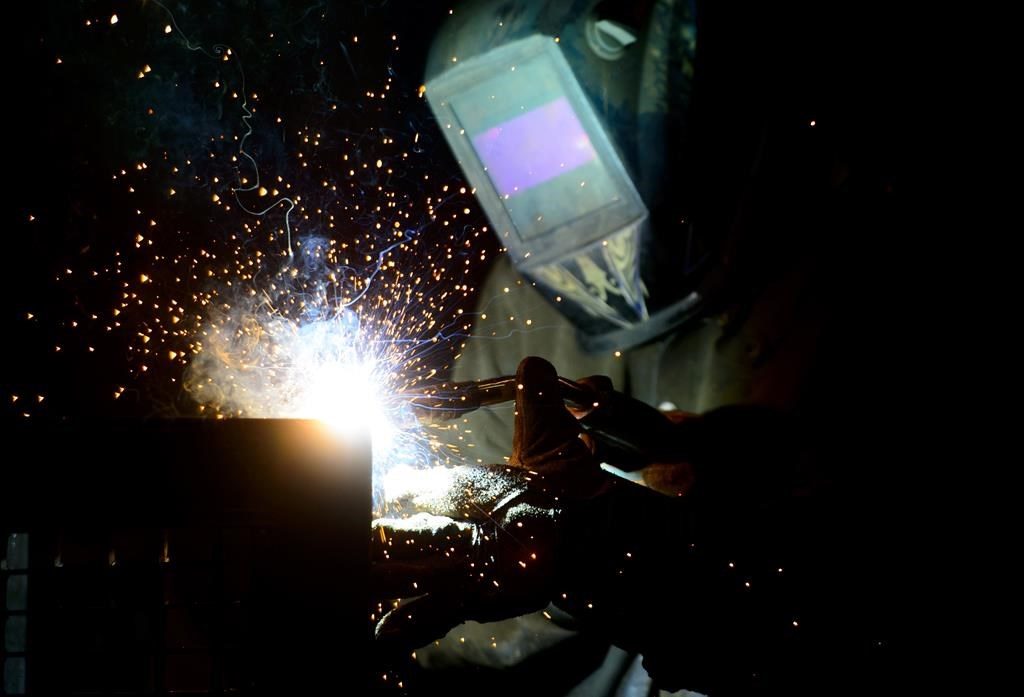Senate votes to force Brazeau, facing charges, to take leave of absence
Posted Feb 12, 2013 05:59:57 PM.
This article is more than 5 years old.
OTTAWA – Patrick Brazeau wasn’t about to take the back door.
The senator and former member of the Conservative caucus took observers by surprise Tuesday as he strolled defiantly into the Parliament buildings to watch his Senate colleagues vote to force him to take a leave of absence.
“I’m just happy to be back at work,” Brazeau said as he walked into the upper chamber.
Once inside, however, Brazeau’s estrangement from the Conservative caucus was part of the new geography. He sat in a back row, on the side dominated by the Liberal caucus, with vacant seats on either side of him.
Brazeau was expelled from caucus after police were summoned to his home in Gatineau, Que., and he spent the night behind bars. He has since been freed on bail and now faces one charge each of assault and sexual assault.
A couple of Conservative senators came to speak to Brazeau — Nicole Eaton said a few words, patting him on the arm. Brazeau clapped along with the others as tributes were paid to retiring Liberal Sen. Joyce Fairbairn.
But within the hour, Brazeau’s day in the Senate was cut short.
Conservative Senate Leader Marjory LeBreton read out a motion to have Brazeau suspended indefinitely from the chamber, “to protect the dignity and reputation of the Senate and the public trust and confidence in Parliament.” It was seconded by her Liberal counterpart, James Cowan.
LeBreton said Brazeau’s access to the entitlements of the office, including travel, accommodation and other expenses would be reviewed by a Senate committee.
A voice vote on the suspension motion was taken — but the only dissenting “no” that was heard came from the 38-year-old Brazeau himself.
As soon as the motion passed, he immediately stood up and left the chamber as purposefully as he had come in, this time saying nothing to the reporters and cameras gathered both outside the chamber and in the parking lot.
There were several other more discreet entrances and exits Brazeau could have used. But Brazeau has never been shied away from the public eye, whether in a celebrity boxing match, on Twitter, on YouTube or on television.
“I think the senator Brazeau is entitled to the presumption of innocence,” said Liberal Sen. Serge Joyal.
“I imagine that in his view as long as he hasn’t been convicted, there’s nothing to blame him for, so he came to the Senate according to the usual procedure.”
Brazeau will continue to collect his $132,000-a-year salary while on leave. If he’s convicted, he could step down, or risk being suspended or expelled by the Senate.
Brazeau, Conservative Mike Duffy and Liberal Mac Harb are also facing an outside audit of their Senate housing claims amid questions about whether the locations of their primary residences entitle them to compensation.
Cowan said if there is evidence that claims were made fraudulently, the information could be passed on the authorities.
“At the very least, if people have received money they are not entitled to, they should pay it back with interest,” said Cowan.
“But neither (LeBreton nor I) are suggesting that if there’s evidence of fraud or evidence of some other impropriety that the appropriate action shouldn’t be taken, including referring it to the police.”
Down the hall in the House of Commons, the prime minister was fielding more attacks from the NDP.
“The Prime Minister’s new Conservative Senate has become even more corrupt than the Liberal Senate that he inherited,” said NDP Leader Tom Mulcair.
“Is the prime minister going to accept this corruption or is he going to hold his Senate cronies accountable for once?”
Said Harper: “I totally reject that categorization. In fact, I would note that in this case the Senate has reacted proactively and quickly to deal with the matters at hand.”
Some senators said they are concerned that the controversies plaguing the upper chamber are casting a pall on other colleagues and their work.
“It’s unfortunate. I supported the motion,” said Conservative Sen. Bob Runciman.
“I think it’s too bad that the focus on the Senate tends to be on issues like this, and not on the good work that goes on in the place on a daily basis.”
A poll conducted right in the thick of it all suggests Canadians have taken note of the Senate’s difficult week.
The Canadian Press/Harris-Decima poll found 32 per cent of respondents said they believe the Senate should be abolished. In 2010, 27 per cent of those surveyed in a similar poll said they felt the same way.
About one-third of those who participated in the latest survey say they feel it’s time the Senate became an elected body.
The telephone survey of just over 1,000 people was conducted between Feb. 7-10 — just as the Brazeau controversy was erupting — and had a margin of error of 3.1 percentage points, 19 times out 20.
The Conservative government recently referred legislation to the Supreme Court that could make an elected Senate a reality, while also imposing term limits on senators.
Senators must retire at the age of 75, but have the option to resign sooner — an option that preserves their pension.
Over the course of the Senate’s 146-year history, some 199 senators have resigned, many for health reasons or to take another job. Only a handful have taken been forced into a leave of absence after a run-in with the law.
Liberal Sen. Raymond Lavigne resigned in March 2011, 10 days after he was found guilty of breach of trust and fraud for claiming travel expenses for trips taken by his staff and having his staff do work on his personal farm on taxpayer time.
He was later sentenced to six months in prison and six months under house arrest, a sentence that’s currently under appeal.
Progressive Conservative Sen. Eric Berntson resigned his seat in 2000 after a fraud conviction relating his time as was a provincial legislator in Saskatchewan.
He was sentenced to a year in jail and appealed his conviction all the way to the Supreme Court.
Both men could have faced expulsion from the Senate because of their convictions, but both resigned before that step could be contemplated.
Had they been expelled, they would not have had access to their pensions, while a resignation allows them to keep getting the cheques.
At least eight other senators have resigned because they didn’t show up for two Senate sessions in row, most doing in the very early days of the institution. Breaking that rule gives the Senate the option of declaring a seat vacant.
The most recent senator to be disciplined for poor attendance was Liberal Andrew Thompson, who was suspended in 1998 after it was revealed he showed up for work only 47 times in 14 years. He claimed it was for medical reasons.
Thompson was stripped of his salary and benefits, but resigned.










